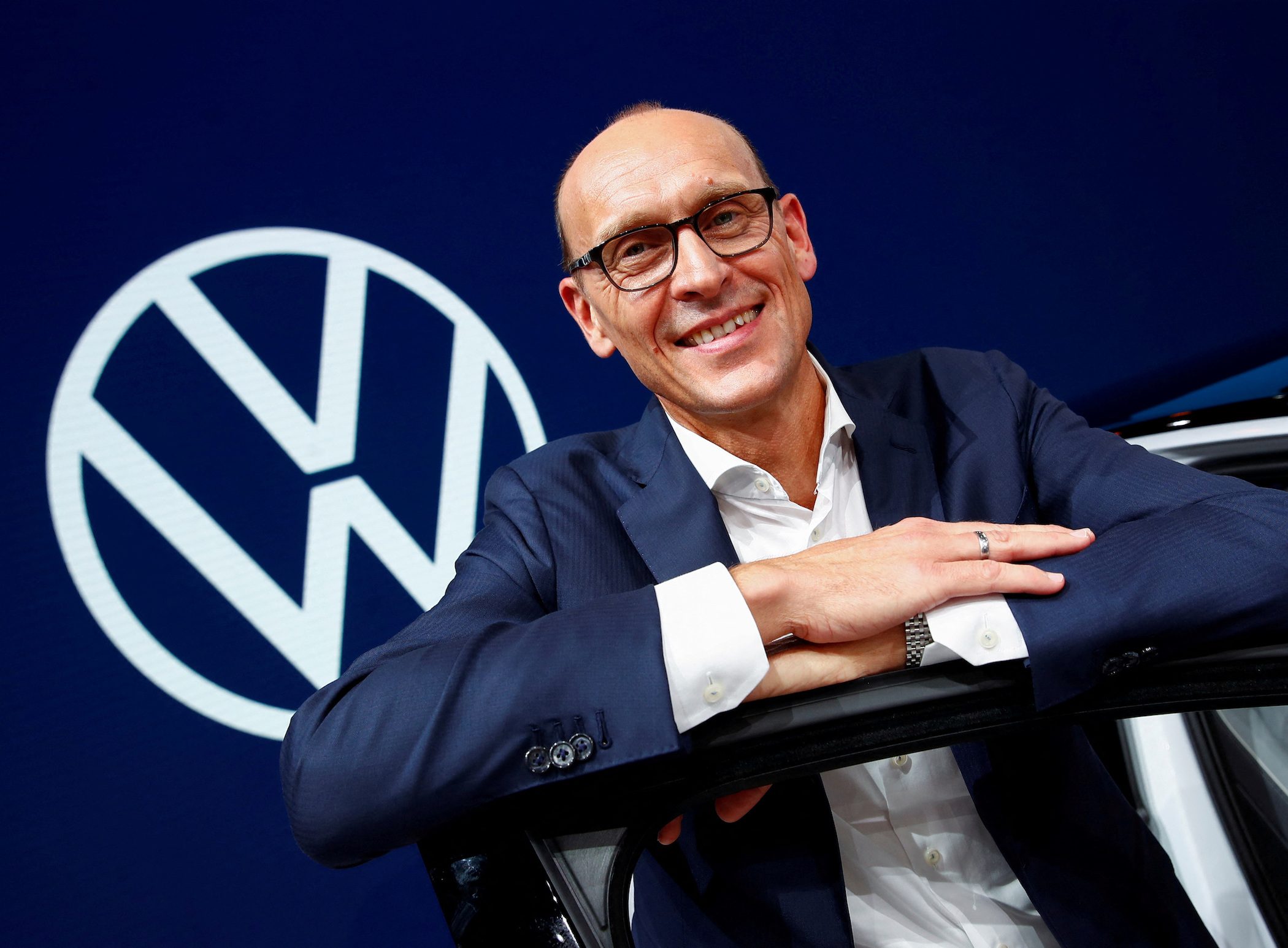SUMMARY
This is AI generated summarization, which may have errors. For context, always refer to the full article.

Volkswagen drew criticism from campaigners and a big investor on Tuesday, February 28, after the head of its Chinese business said he saw no sign of forced labor during a visit to the carmaker’s Xinjiang plant.
The works council, which is represented on Volkswagen’s supervisory board, in a statement following Ralf Brandstaetter’s comments said the company must make clear the plant’s value for the business and take a stance on human rights violations in China.
Activists, an international group of lawmakers, and the head of sustainability and corporate governance at top-20 Volkswagen investor Deka Investment said verifying labor standards in the region was impossible.
“However much Mr. Brandstaetter makes an effort, Volkswagen cannot be certain. That leads not only to reputational risk, but also legal issues, for example with supply chain laws,” Deka’s Ingo Speich said.
Volkswagen relies on profits from China to fund electric vehicle research and development in Germany and is fighting domestic competitors to keep market share in the country.
Brandstaetter said in January it was important to act from a “position of strength” within China and stay strong in the market while also ramping up sales elsewhere.
On February 16 to 17, he toured the German group’s jointly-owned facility with China’s SAIC in Xinjiang, along with Volkswagen’s compliance and external relations chiefs in China.
Rights groups have documented human rights abuses in Xinjiang, including mass forced labor in detention camps that the United Nations said could constitute crimes against humanity. China has denied any abuses in Xinjiang.
Volkswagen says it has never found evidence of forced labor among its Xinjiang workforce and its presence is positive for locals. It denied reports it had kept the plant open because Beijing had imposed a condition it had to keep producing across China.
“I can talk to people and draw my conclusions. I can try and verify the facts [from joint venture partner SAIC], and that’s what I did. I didn’t find any contradictions,” Brandstaetter said, adding it was his first visit but not his last.
Reputational risk
Brandstaetter said he spoke at length to seven workers individually – including Han Chinese, Uyghurs, and Kazakhs – some through a Volkswagen translator and some in English, and held shorter discussions with other workers on his tour, which he said occurred without government supervision.
But Luke de Pulford of the Inter-Parliamentary Alliance on China, a group of legislators from 30 democratic countries including Britain, Germany, and the United States, said labor standards could not be verified because members of the Uyghur minority could not speak freely without fearing for their safety.
The plant’s staff have been cut by 65% since the pandemic and it only conducts final quality checks and the installation of certain features before handing over vehicles to dealers.
Planned output for this year is 10,000, in contrast to the 50,000 targeted when it opened.
The carmaker was initially praised for setting up the plant, chief lobbyist Thomas Steg said, comparing the goal of building infrastructure and boosting living conditions to Germany’s reunification.
But the atmosphere shifted after numerous deadly attacks in Xinjiang and elsewhere between 2009 and 2014 which the Chinese government blamed on militants from the region, leading to a “significantly more repressive approach,” he said.
However, as Volkswagen seeks new partners worldwide – partly to diversify its business from the Chinese market – breaking its agreement to keep the plant until at least 2030 would make Volkswagen an unreliable partner and was out of the question, Steg said.
“VW is stuck in a situation of reputational risk in Xinjiang,” Speich of Deka said. – Rappler.com
Add a comment
How does this make you feel?










There are no comments yet. Add your comment to start the conversation.